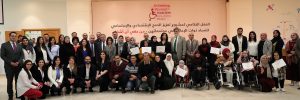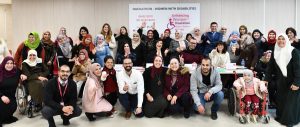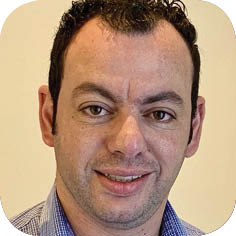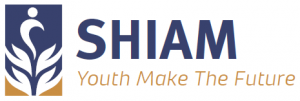As Palestinian society is overwhelmingly composed of youth, Palestinian policymakers must consider this critical segment of the population as key in designing national plans, setting out relevant policies, formulating budgets, and engaging the tremendous potential of youth in enhancing community resilience and development. Promoting such an approach was the aim of initiating the Youth Local Councils (YLCs) venture in 2008. The venture was set as a structured grassroots youth engagement mechanism that facilitates and supports youth empowerment, leadership, and advocacy, starting with the closest form of governance to the people – the local governments. The YLCs are voluntary bodies composed of youth aged 15 to 22 years who are elected by their peers, mirroring the positions of their local (community/municipal) councils to prepare them to actively engage in local governance based on democratic and good-governance principles. What started out as a pilot project in four Palestinian local communities has become the widest youth grassroots movement in Palestine, with councils set up in more than 50 Palestinian communities over the past ten years.
The driving idea behind the YLCs is that a democratically elected youth voluntary body would be instrumental in voicing the needs of youth and facilitating their participation at the local and national levels, thus bridging the gap between local and national government institutions and youth. Engaging in YLCs helped prepare youth to be ethically and values-based good governing leaders. The YLCs do not represent political parties but rather serve as elected representatives with a direct democratic mandate to give young people a voice, serve youth interests, and ensure positive engagement as good citizens.

The model itself is not unique, but it has proved extremely successful in steering youth energies and unleashing potential to achieve positive change on multiple levels, which Palestinian youth were proud to be the first to mark regionally and globally. Youth have become advocates for positive change. A YLC in Qalqilya contributed to the development of the Municipality Strategy and Action Plan. A 16-year-old girl from the town of Illar in the Tulkarem district headed the YLC and acted as the mayor for three months, running most municipal affairs. Three alumni from the council ran for formal municipal elections and won at the young age of 24 years. Youth-led campaigns have focused on advocating for gender equality, the rights of people with disability, schools and public safety, environmental protection, the importance of public officials’ accountability, and the importance of free media, voluntarism, and good citizenry.
At a time when the Palestinian cause is at a complex crossroads, there is a crucial need to solidify the base and continue to equip Palestinian youth leadership to be able to cope with the current and future political, social, and economic challenges that face our nation. Youth ought to be empowered, and their voices must be heard in a population that is distinguished by its youth. As a society, we all have to work in our various capacities to empower a grassroots youth movement that is able to tap into our most important strength: our youth.

Palestinian YLCs have made their positive mark. In 2017, the initiative competed in the international and widely competitive McNulty Prize – a prestigious global award that recognizes personal leadership efforts to address the world’s toughest challenges. Competing with transformative initiatives across the globe, the Youth Local Councils venture of Palestine and its founder Ms. Lana Abu Hijleh triumphantly earned the award for social impact.
Consequently, several YLC alumni established Shiam−Youth Make the Future (شيم-شباب يصنع المستقبل) in 2018 with the mission to scale up the YLC presence, support existing councils, and further drive grassroots Palestinian youth activism and advocacy. The young Shiam organization has already built on its localized model of youth engagement and empowerment. It presently promotes youth inclusion in social, economic, and governance arenas. It advocates for the rights of people with disabilities and for the use of youth creativity, agency, and entrepreneurship to tackle complex challenges such as the sustainable development goals, water issues, and social protection needs, utilizing creative-thinking platforms such as Hackathons to harness and advocate for responsive solutions. To enhance its advocacy impact, Shiam is building partnerships with the private sector, public organizations, the media, and international organizations.
This widespread youth movement demands collective efforts, and everyone can be part of its impactful work. Please reach out and tell us how you can support.



